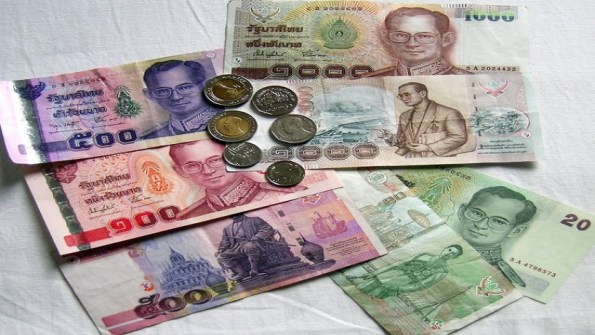Introduction
Phuket is Thailand’s largest and most visited island, famous for its tropical beaches, vibrant nightlife, and cultural richness. Whether you’re coming for a relaxing beach holiday, a honeymoon, or a backpacking adventure, one thing you’ll need to handle carefully is your money.
Understanding Phuket currency exchange rates can make a big difference in how much you actually get for your budget. A few Baht saved here and there can quickly add up especially on longer trips. This guide will explain how to exchange your money safely, where to get the best rates, and what pitfalls to avoid.
The Basics: Understanding the Thai Baht
The official currency in Phuket and across Thailand is the Thai Baht (THB).
Here’s what you need to know:
- Symbol: ฿
- Coins: 1, 2, 5, 10 Baht
- Banknotes: 20 (green), 50 (blue), 100 (red), 500 (purple), 1,000 (grey)
- Usage: Cash is still king in many parts of Phuket, especially in markets, local restaurants, and rural areas.
No matter where you’re from, you’ll need to exchange your home currency for Baht to make purchases.
What Affects Phuket’s Currency Exchange Rates?
Exchange rates in Phuket fluctuate daily, influenced by global and local economic factors.
Here are the main things that impact the rates you’ll get:
- Global Market Movements – Currency values change every day depending on international trade, inflation, and political stability.
- Service Provider Fees – Banks and exchange counters often add a hidden margin to the rate.
- Currency Type – USD, GBP, and EUR often get better rates than rare or less common currencies.
- Location in Phuket – Tourist-heavy areas might offer slightly worse rates than local neighborhoods.
- Amount You Exchange – Some providers give better rates for higher amounts.
Where to Get the Best Currency Exchange Rates in Phuket
1. Licensed Currency Exchange Shops
Independent exchange counters usually have the best rates, especially those near busy tourist areas. Many display rates on a digital board outside. Reputable services like phuket currency exchange rates offer competitive pricing and reliability.
2. Banks
Banks are secure and reliable but might not always match the rates of independent shops. They also require you to show your passport.
3. ATMs
Withdrawing Baht from ATMs is quick and easy but comes with drawbacks:
- Thai ATM fee: ~220–250 THB per withdrawal
- Possible home bank fee
- Slightly worse rates than physical exchanges
4. Hotels & Resorts
Convenient but almost always the most expensive option. Only consider this if you urgently need cash.
Best Time to Exchange Your Money
- Exchange a small amount before your trip — This covers your first taxi, food, or emergency expenses.
- Do the bulk of your exchange in Phuket — Compare rates at multiple providers before making a big transaction.
- Check daily updates — Even a 0.5% difference can save you hundreds of Baht over a longer stay.
Money-Saving Tips for Currency Exchange in Phuket
- Avoid exchanging at the airport – Rates there are among the worst.
- Carry your passport – Thai law requires it for currency exchange.
- Check rates online first – Know the mid-market rate before approaching an exchange shop.
- Exchange in larger amounts – This can sometimes unlock better rates.
- Use official counters only – To avoid scams or counterfeit money.
- Split your cash – Keep some in your wallet and the rest in your hotel safe.
Digital Payment Alternatives
If you don’t want to carry too much cash, consider digital payment options:
- Wise & Revolut – Let you hold Thai Baht and pay directly without a physical exchange.
- GrabPay – Popular for taxis and deliveries.
- Credit Cards – Accepted in most hotels and upscale restaurants, but small shops still prefer cash.
Staying Safe While Handling Money
Phuket is generally safe, but it’s best to be cautious:
- Count your money before leaving the counter.
- Avoid large withdrawals in public areas.
- Keep receipts in case of disputes.
- Never use unlicensed street exchangers.
Conclusion
Getting the best Phuket currency exchange rates is about more than just finding the cheapest place; it’s about planning, safety, and knowing your options. Whether you prefer to carry cash, use ATMs, or go digital, understanding the system will ensure you get the most out of your Thai Baht. That way, you can spend less time worrying about money and more time enjoying Phuket’s beaches, culture, and nightlife.
FAQs
- What currency should I bring to Phuket?
Bring major currencies like USD, EUR, or GBP for the best exchange rates. They are more widely accepted by exchange counters. - Is it better to exchange before arriving in Phuket?
It’s good to exchange a small amount before arriving for immediate needs, but you’ll generally get better rates in Phuket. - Can I pay in USD in Phuket?
No, businesses only accept Thai Baht for purchases. - Are ATMs safe to use in Phuket?
Yes, but always use ATMs in well-lit, secure locations, preferably attached to banks. - Do I need an ID for currency exchange?
Yes, most providers require your passport by Thai law.


